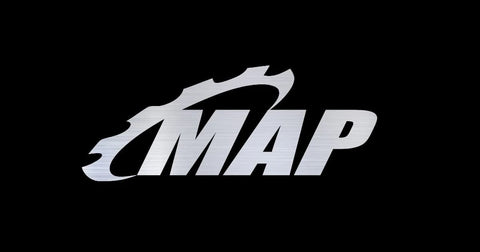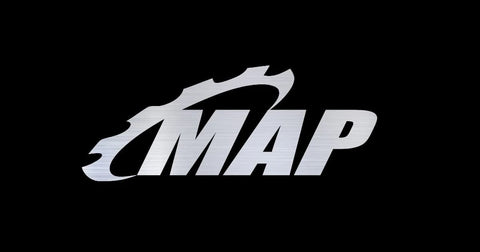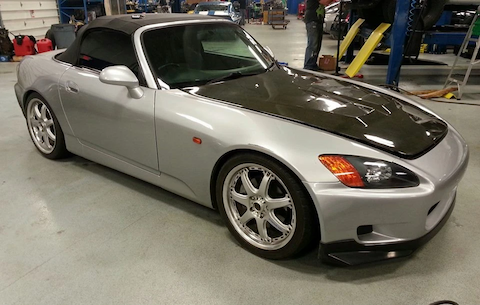For many people, cars and trucks are more than just an interest; they are a way of life. Whether you have a fun daily driver, a dedicated track car or both, you likely want to maintain your vehicle. The best way to keep it in the best shape possible is through preventative work. From synthetic oil to air conditioning coolant, checking, replacing and topping up your fluids are essential maintenance tasks.
1) Motor Oil
Motor oil is a special type of oil used to lubricate and clean the inner workings of your vehicle’s power train. It runs through the engine itself as well as some other components such as turbochargers.
Historically, motor oil has been a mixture of natural base oil with some additives to help with lubrication, cleaning and heat management. However, many modern cars use synthetic oil. Despite the name, synthetic oil is also based on natural oil. It simply has more additive and performs better, especially in performance settings.
Checking your motor oil regularly is important. The exact steps for this can vary from vehicle to vehicle. For example, some should be checked while the engine is hot. However, the general process is to park your car on a flat surface and let it cool down. Then, locate the dipstick and pull it out carefully wiping off all the oil. Reinsert the dipstick fully before removing it again. This time do not wipe off the oil. Check where the oil level reaches on the stick. There should be notches indicating the maximum and minimum level.
2) Transmission Fluid
Your transmission also needs to be lubricated. Automatics, including the manually controlled, dual-clutch automatics in many sports cars, use automatic transmission fluid. Manual transmissions may use the same fluid or more conventional gear oil. However, the concept and goal are the same regardless of your setup.
As you likely know, transmission repairs can be very expensive. So, keeping it lubricated is very important. Some modern transmissions are designed to not require fluid changes. Even these may eventually need a top-up or change, but not for tens or hundreds of thousands of miles.
Again, park the car on a level surface and let it cool. Pull out the dipstick and wipe it off. Reinsert it fully before taking a reading.
3) Differential Fluid / Oil
It probably comes as no surprise that your differential(s) needs to be lubricated. This is typically done with gear oil, similar to the kind used on many manual transmissions. It is thicker than motor oil and intended for high-pressure use more so than high-temperature use.
To check the fluid level, jack the vehicle up so it is level (this needs to be done with jack stands or a lift). Open the fill/service port with a wrench. Then, check the level and quality of the fluid with your finger. However, most vehicles can have their differential fluids changed based entirely on the maintenance schedule.
4) Coolant / Radiator Fluid
The radiator helps keep your engine cool. While any type of driving can cause an engine to overheat without cooling, it is especially important for performance vehicles. If you are trying to push your car to the limit, you will need to ensure your coolant is consistently at optimal levels.
Typically, coolant / radiator fluid should be checked when the car has been running but is currently shut off. Of course, you should consult your owner’s manual for the specifics. Locate the radiator cap and carefully remove it with a rag. You should be able to see the fluid level near the top.
5) Windshield Washer Fluid
Having a clean and clear windshield is essential for performance driving. If you like rally or similar sports, you really need good windshield wipers and plenty of washer fluid. Although this doesn’t keep your vehicle running like some of the other fluids on this list, it is very important.
This is one of the easiest fluids to check. In many cases, the reservoir is visible when the hood is open. Simply park on a level surface and locate the fill line. Check to make sure the fluid is above the minimum line. In some cases, you may need to remove the cap to check the level.
6) Brake Fluid
If you want to drive your car as hard as you can, you need to be able to stop. Your brakes are as important to driving quickly as horsepower. So, you should check your brake fluid level regularly.
Again, park your vehicle on a flat surface. Open the engine compartment and locate the brake fluid reservoir. Before removing the cap, clean off the outside of the tank. It is very important not to contaminate the fluid.
Look inside to check the fluid level. It should be within about half an inch of the cap.
7) Power Steering Fluid
Modern power steering allows cars to be much nimbler than in the days of mechanical steering. However, it requires another fluid to be checked and topped up.
Again, you should check your manual to ensure you are following vehicle-specific instructions. Look for the reservoir in the engine compartment. Open the gap and clean off the mouth. Use the dipstick in the same way you would check motor oil. The level should be consistent. So, if it is low, check for a leak.
8) A/C Coolant
Finally, you want to make sure your A/C coolant is at the right level. Unless you have deleted your air conditioning to save weight, this fluid is important for keeping the cabin comfortable.
Unfortunately, this fluid is relatively difficult to check and requires some specialized tools. For most people, it makes sense to have a mechanic check this level. However, you can do it with an A/C gauge and thermometer from the store.
Strangely, despite the fact that this is hard to check, it is fairly easy to recharge. Again, you can pick up the supplies you need at the auto parts store.
Maintain Your Fluid Levels
Checking and maintaining these fluids will help to keep your vehicle in good working order for longer. Preventative maintenance is important.




Comments (0)
There are no comments for this article. Be the first one to leave a message!